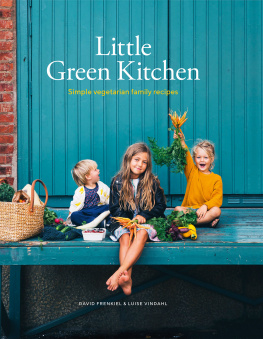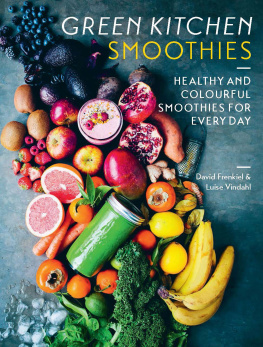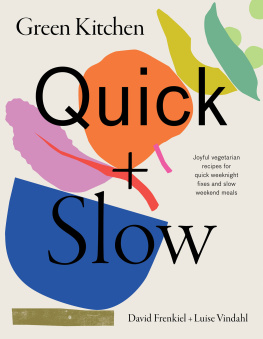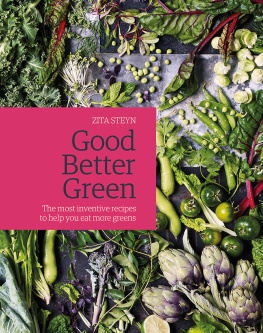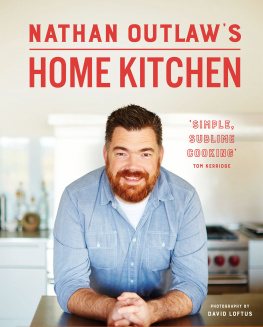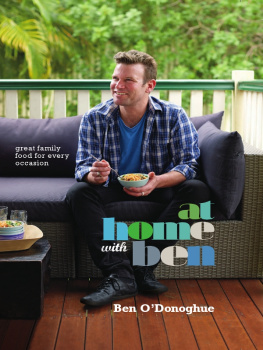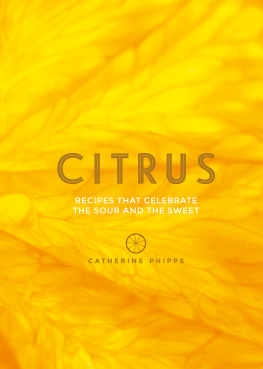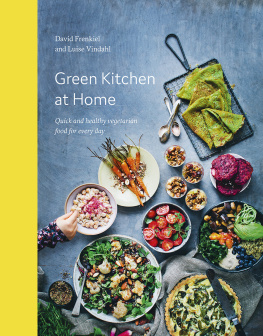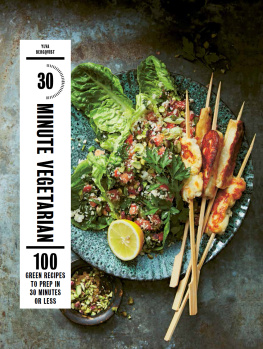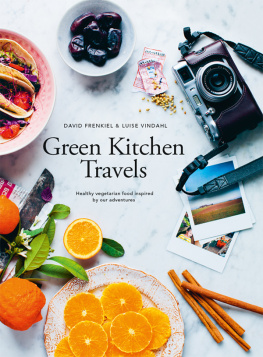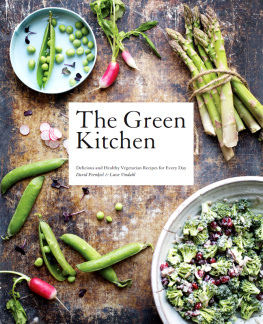DEDICATION
To all parents. You are doing a great job. Just hang in there.
And to our children, Elsa, Isac and Noah. The bravest, kindest and strongest little humans we know.
May our post-dinner wrestling tradition never end.
Contents

I had just finished cooking a ). But when she entered the kitchen she took only one glimpse at the stove before bursting into tears:
We had terrible lunch at school and now Im coming home TO THIS!? Im so hungry but I haaaate stews. Why are you doing this to meeeeeeee!?
The road to feeding your children isnt always straight. We know this all too well. We have three children between two and eight years old who we have raised on a mainly vegetarian diet. There are days when plates end up on the floor, when you have to bribe and bargain, when youve spent hours in the kitchen cooking for your family only to end up serving the kids a cheese sandwich or a bowl of oats because they are refusing to eat anything else. But there are good days too. Days when they pour down smoothies spiked with cauliflower, avocado or beetroot (beet) ( with black rice.
There are many things in parenthood that arent easy, but if there is one task worth a little extra effort, its your childrens food and health, wouldnt you agree? That is why we wrote this book: to share what we have learned through writing four (this is our fifth) vegetarian cookbooks while raising three young children. We want to give recipes, tools and tips to parents on how to cook wholesome and vegetable-focused food for their family. But, also, to tell you that its okay when all bowls arent licked clean. You still did a great job and it will pay off in the future (see for more on this).
We asked our daughter if she would feel better eating that cashew masala while drawing, on a tray in her bed. She nodded, still sobbing. Thirty minutes and three Pokmon drawings later she asked for a third bowl of masala. You see, if there is one thing we have learned through all of this, it is that many outbursts arent even about the food. A thought that is equal parts comforting and hopeless.
OUR FAMILY AND FOOD
This year marks the ten-year anniversary since Luise and I launched our blog Green Kitchen Stories (woohoo!) and started this journey of cooking and writing recipes together. Our family has grown and we have evolved through the years, but the essence of our recipes and food philosophy is still the same. Our recipes are always centred around vegetables. But also wholegrains, good fats, natural sweeteners, nuts, seeds, pulses (legumes) and fruit.
We try to have a positive and relaxed approach to healthy food and we truly believe that by eating well we can all feel better.
We have brought up our children Elsa, currently eight, Isac, currently four, and Noah, currently two on a mainly vegetarian diet, meaning that they eat what we eat. I have been a vegetarian for over 20 years. Luise is not, but at home she eats 90 per cent vegetarian food with the add-in of fish dishes for her and the kids every now and then. The boys preschool is a fantastic little place where they only serve homemade organic vegetarian food, and we have actually picked up a couple of ideas from them that we have included in this book. Elsa eats vegetarian food and fish at her school. Their health has always been our main goal and if we for one second felt that they wouldnt get all the nutrients they needed from their diet, we would re-evaluate our choices. They are, however, three happy, wild and strong little humans, so we continue down this path for now.
As the kids are growing they have been gaining more influence on our cooking. There is more hand-held food, more cheese (hello halloumi!), more pasta and other comfort food coming out of our kitchen nowadays. Youll notice that in this book as well. We take more shortcuts with store-bought vegetable patties or tofu sausages when we dont have the time or energy to make our own. The way we see it, all shortcuts that help you and your family stay sane are welcome just check the ingredient lists to avoid too many weird substances and unnecessary added sugars.
We teach our kids about how vegetables make us strong. How desserts make us happy. And that we need a good mix of both. We often finish each dinner with a wrestling match, a running competition or an arm wrestle. Its a simple and fun demonstration of how strong the food we eat makes us. Ill stuff a few extra spinach leaves or beans in my mouth before leaving the table to make sure I can beat them. And then they do the same, because they want to beat me. It is a playful approach to health and I think our kids realise that its not exactly how it works. But as long as I lose, theyre happy.
THIS BOOK
We dont cook separate meals for our children and this book is not an exception. Who has the time and energy to cook double dinners anyway? This is a cookbook for families. With fun, modern, wholesome and vegetable-focused meals created with kids palates in mind, but which are also interesting enough for adults to enjoy. All main meals have upgrade suggestions for adults at the end of each recipe. They are ideas for how to make them spicier, greener, more flavour-packed, or to add textures to a dish and toppings to a soup (of course, you can also serve the upgrades to your kids if you think they will like them).
So, with little or no alteration the same meal will feed the entire family.
A HELPING HAND
We believe that involving children in the kitchen is essential. Therefore, most recipes have a section called A helping hand (except for the ones in the Condiments and Upgrades chapter), where we suggest what the kids can help out with. It can be chopping softer ingredients (small children are less likely to slip and cut themselves on tofu and (bell) pepper than pumpkin and carrots), stirring sauces, decorating and tasting the food. Some of these tips might seem obvious, but see them as reminders to include children in the kitchen. Even if it can take a little longer with them stirring the pots or playing its snowing! with a bag of flour, you are doing them a huge favour. Not forgetting that it makes them more invested in the food, which multiplies the chances of them actually eating it.
TALK ABOUT FOOD
Our hope is that you use this as more than just a recipe book. We want it to be a sort of conversation starter between you and your child/children. Talk about food, talk about vegetables, about fruit, fast food, school meals, how vegetables taste and how they grow. Help them understand why you want them to try something new. Dont focus on good or bad food. Describe food as something that will help their bodies grow, give them energy, make them stronger, happier, faster, smarter. To get you started, we have listed questions in all chapter openers about vegetables and food. Questions that dont really have a right or wrong answer, but instead will get them (and you) thinking. Questions such as:

